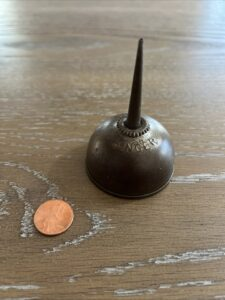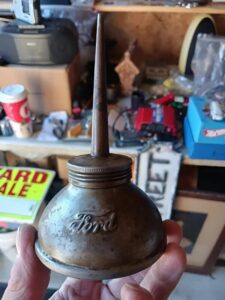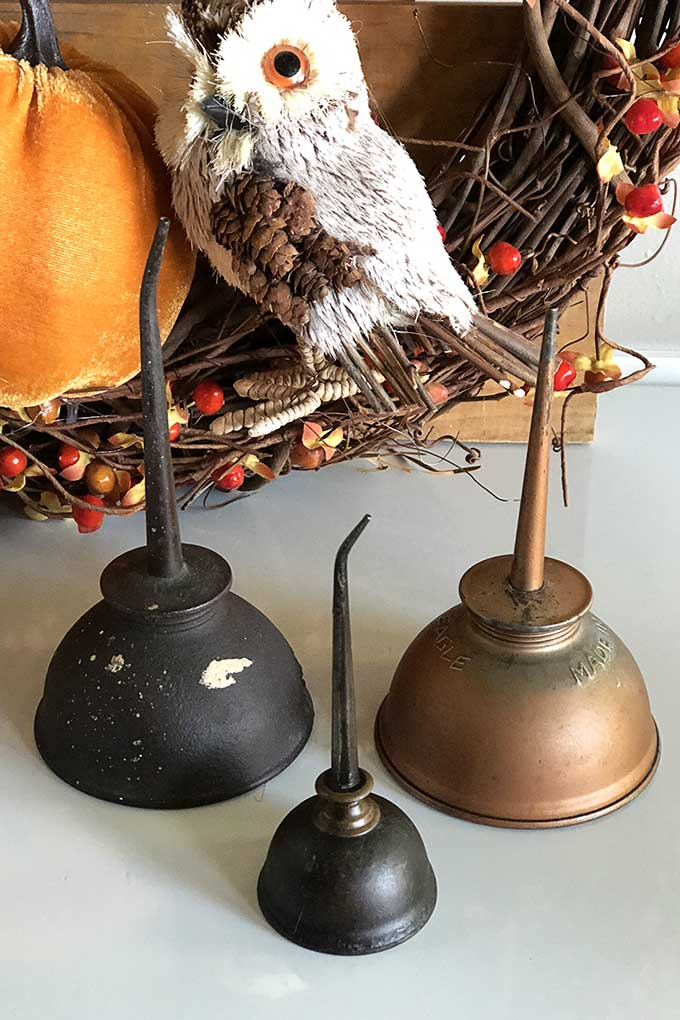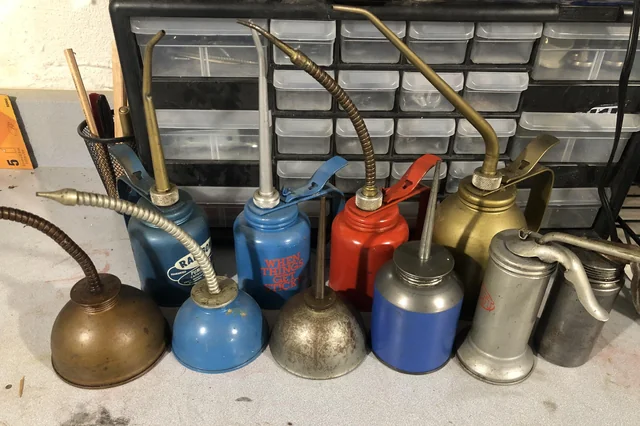A Forgotten Tool That Once Fueled the World
If you’ve ever stumbled across one of these odd-looking metal contraptions in a dusty garage or old toolbox, you probably paused and asked yourself: “What is this thing?” It’s the kind of object that doesn’t say much at first glance, but to those who lived through a certain era, its purpose is as clear as day.
We’re talking about the vintage oil can—a true symbol of hands-on, grease-under-the-nails, roll-up-your-sleeves kind of living. And this isn’t just any oil can… it’s a Ford-branded piece of history, straight from the golden age of mechanical self-reliance.
Let’s dig into why this little guy mattered so much—and why it still sparks nostalgia today.

When Machines Needed Human Hands, Not Software Updates
Today, our cars talk to us. Lights flash. Dashboards ding. Engines warn us with codes and sensors. But rewind the clock to the early 1900s, and it was a whole different story. Machines didn’t look after themselves. And neither did cars.
Back then, if your Ford Model T started to squeak, smoke, or groan, there was no dealership to book an appointment. You were the mechanic. And this little oil can? It was your lifeline.
You didn’t just own one—you relied on it. The car wouldn’t run smoothly without your regular attention and that perfect squeeze of oil.
Video: More garage sale vintage oil cans
The Genius of the Design: Simple, Smart, and Spot-On
Let’s talk about the design for a second. It might look clunky now, but this tool was precision-engineered for its time.
- Long, narrow spout: Reached deep into tight spaces—engine corners, hinges, and bolts hidden from plain sight.
- Soft metal body: Gave you full control. A gentle squeeze would send a perfect drop of oil where it was needed—no mess, no fuss.
- Sturdy build: Made to last. No plastic. No disposable nonsense. Just good ol’ reliable steel.
This wasn’t a gimmick. It was built for utility. Whether you were in a workshop, a factory, or your own driveway, this can was your secret weapon.

Why This Can Is More Than Just Metal
Sure, it’s an oil can. But it’s also a symbol of an era—a time when people fixed things instead of replacing them. When your hands got dirty because that’s what it took to make things work. When passing down knowledge from father to son (or mother to daughter) meant knowing exactly how to use one of these.
It stood for:
- Skill
- Responsibility
- Pride in maintenance
Every nick, dent, and oil stain on these cans tells a story. They weren’t just tools—they were companions on every tune-up, every repair, every job well done.

Why It’s Rare to See One Today
Let’s be honest: most people under 30 wouldn’t even know what this is. And why would they?
Modern machines are closed systems. You’re not supposed to touch the engine anymore. Just plug it in. Wait for the light to go green. Let the app handle it.
But here’s the thing—that disconnect has cost us something. We lost the joy of being hands-on. The knowledge that we can solve things ourselves. The satisfaction that comes from fixing something instead of replacing it.
The vintage oil can is a time capsule, reminding us how different the world used to be—not just in tools, but in mindset.
Video: Vintage Oil Can Restoration
Rediscovering the Past Through Rust and Memory
These days, you might find one of these tucked away in an old toolbox, forgotten in a barn, or displayed in an antique shop. It might be rusty. It might not work anymore. But that doesn’t make it worthless.
On the contrary—that wear and tear is its charm.
It tells us this tool was used. It served. It mattered. And that’s more than can be said for a lot of modern gadgets that barely last five years.

The Takeaway: A Tool That Tells a Story
So next time you spot one of these old oil cans, don’t toss it aside or walk past without a second thought. Pause. Look closer. Imagine the hands that held it, the engines it saved, the knowledge it represents.
It may not beep or glow or connect to Wi-Fi, but it carries something even more valuable—a connection to a time when tools had soul, work had meaning, and people took pride in the things they kept running.
In a world of fast fixes and throwaway culture, that old Ford oil can reminds us: sometimes, the past had it right all along.
